Hydroxypropyl Methyl Cellulose (HPMC) has become a cornerstone in modern construction materials, particularly in tile adhesives and plaster additives. As a versatile chemical modifier, HPMC enhances the performance of cement-based products, ensuring durability, workability, and adhesion. This article explores the technical specifications, application scenarios, and company background of the Tile Adhesive Chemical Hydroxypropyl Methyl Cellulose offered by Shijiazhuang Gaocheng District Yongfeng Cellulose Co., Ltd..
Understanding Hydroxypropyl Methyl Cellulose (HPMC)
Hydroxypropyl Methyl Cellulose (HPMC) is a semi-synthetic, organic polymer derived from cellulose. It is produced by etherifying purified cotton fibers under alkaline conditions, resulting in a substance with exceptional thickening, water retention, and film-forming properties. The product described here is a milky white or white powder, with a carbonization temperature ranging from 280–300°C and a color temperature of 190–200°C. Its particle size is finely controlled, with 100 mesh pass rates exceeding 98.8%, and special specifications available in 40–60 mesh.
The apparent density of the powder is 0.25–0.70 g/cm³ (typically 0.5 g/cm³), while its specific gravity falls between 1.26–1.31. HPMC is soluble in water and certain solvents like ethanol/water or propanol/water mixtures. Its aqueous solutions exhibit surface activity, high transparency, and stable performance, making it ideal for construction applications.
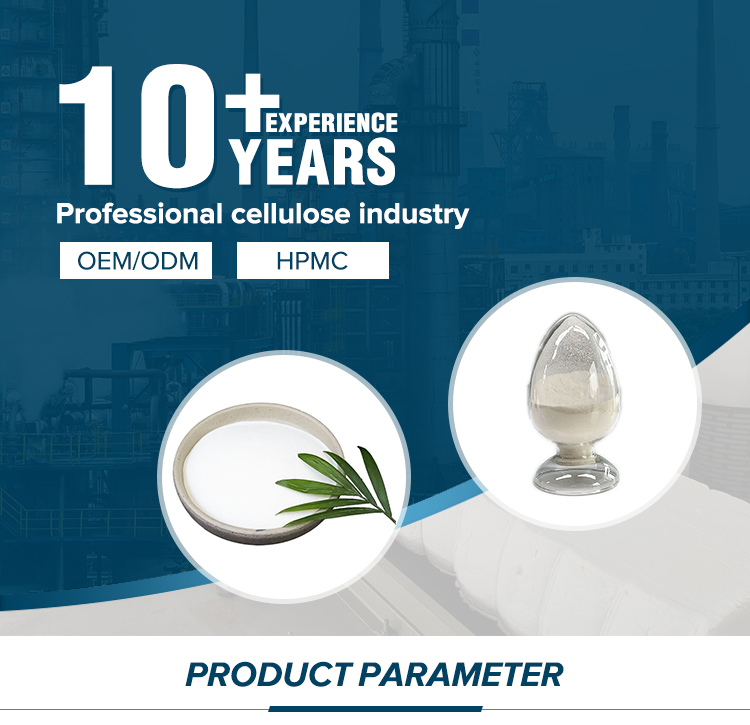
Key Features and Advantages
HPMC stands out in the construction industry due to its unique properties. It provides excellent water retention, which is critical for maintaining the workability of cement mortars and adhesives. This characteristic prevents premature drying, ensuring even distribution of the mixture and reducing cracking. Additionally, HPMC enhances dimensional stability, minimizing shrinkage during the curing process.
The product’s low ash content and PH stability make it compatible with a wide range of construction materials. Its adhesive properties improve the bond between tiles and substrates, while its mildew resistance and dispersibility ensure long-term durability. These features collectively contribute to the enhanced performance of tile adhesives and plaster additives.
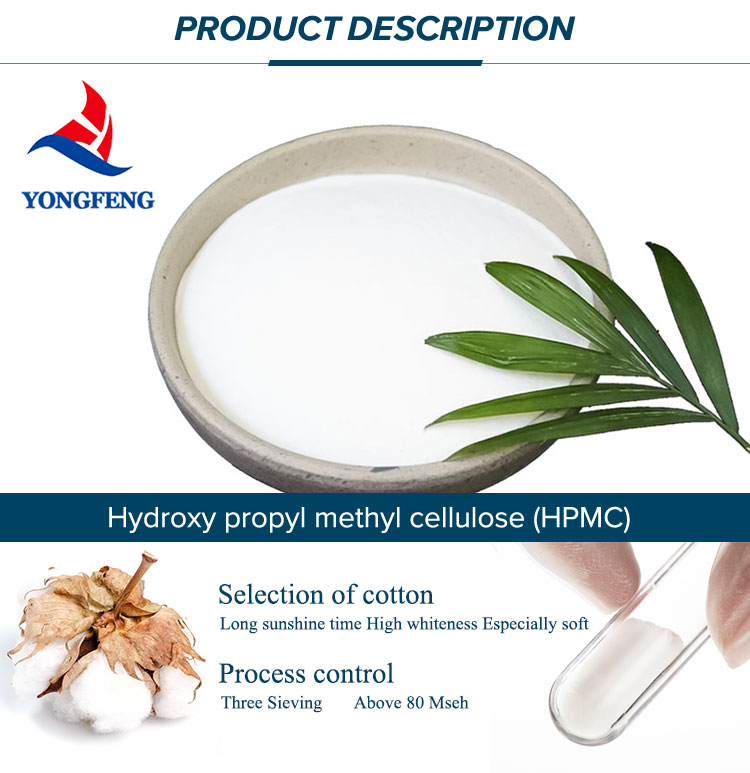
Technical Specifications Table
| Parameter | Details |
|---|---|
| Appearance | Milky white or white powder |
| Carbonization Temperature | 280–300°C |
| Color Temperature | 190–200°C |
| Particle Size | 100 mesh: >98.8%; 80 mesh: 99.9%; 40–60 mesh (special) |
| Apparent Density | 0.25–0.70 g/cm³ (typically 0.5 g/cm³) |
| Specific Gravity | 1.26–1.31 |
| Solubility | Soluble in water and solvents (e.g., ethanol/water, propanol/water) |
Application Scenarios in the Construction Industry
The Tile Adhesive Chemical Hydroxypropyl Methyl Cellulose is widely used across various construction applications. Its primary uses include:
- Cement Mortar: Enhances workability and cohesion, reducing the risk of segregation.
- Ceramic Tile Cement: Improves adhesion and water retention, ensuring strong bonding between tiles and surfaces.
- Refractory Coatings: Acts as a suspension agent and fluidity improver, enhancing the adhesion of asbestos or refractory materials to substrates.
- Gypsum Coagulant Slurry: Boosts water retention and adhesion, critical for gypsum board applications.
- Joint Cement: Added to ground joint cement for gypsum boards to improve fluidity and water retention.
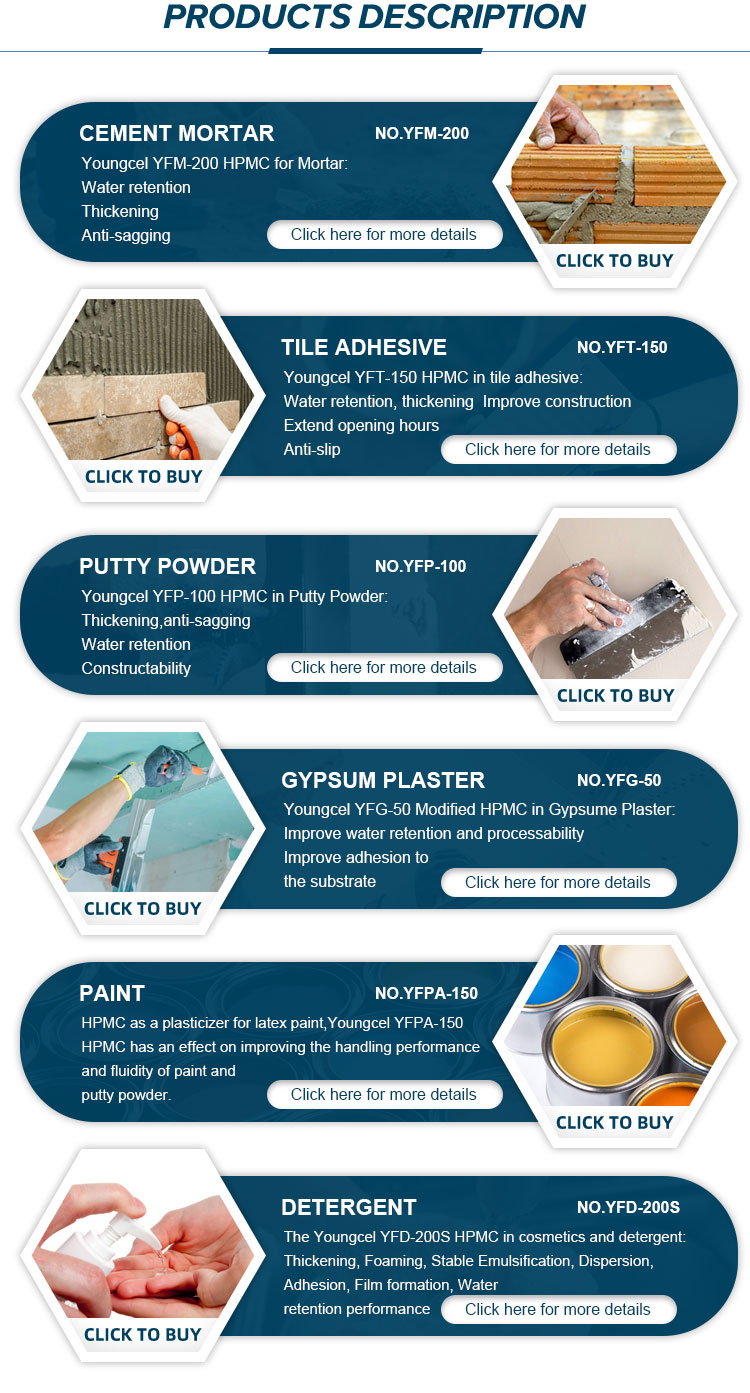
Company Background: Shijiazhuang Gaocheng District Yongfeng Cellulose Co., Ltd.
Shijiazhuang Gaocheng District Yongfeng Cellulose Co., Ltd. is a leading manufacturer of chemical additives, specializing in hydroxypropyl methyl cellulose (HPMC) and related products. With years of experience, the company has established itself as a reliable supplier of high-quality materials for the construction and industrial sectors.
The company’s product line includes cellulose, chemical additives, adhesives, and binders. Their Tile Adhesive Chemical Hydroxypropyl Methyl Cellulose is produced using advanced etherification techniques, ensuring 99% purity and compliance with international standards. The product is packaged in 25 kg net weight units, catering to both industrial and commercial needs.
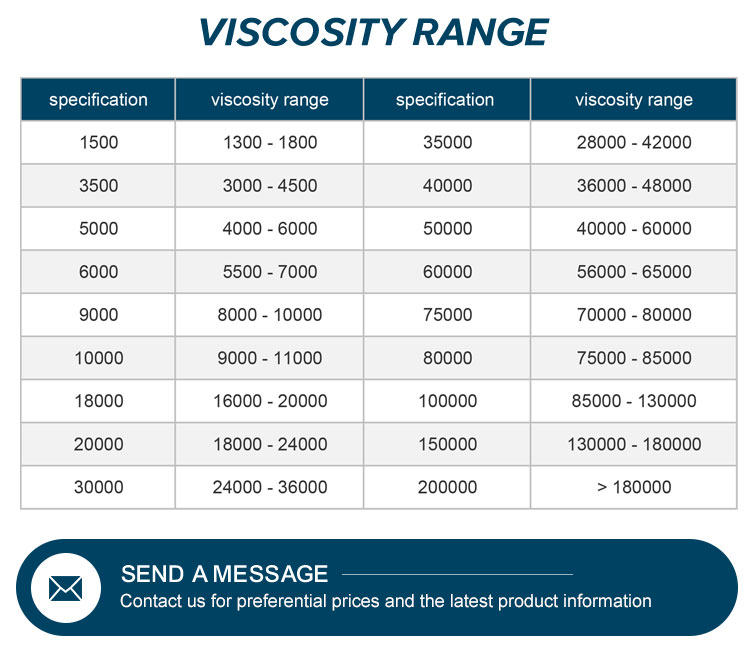
Why Choose HPMC for Construction?
The integration of Hydroxypropyl Methyl Cellulose into construction materials offers several advantages. Its water retention properties are particularly beneficial in hot or dry climates, where rapid moisture loss can compromise the integrity of cement-based products. HPMC also improves the film-forming ability of coatings, ensuring a smooth and even finish.
Furthermore, the dimensional stability provided by HPMC reduces the likelihood of cracks and deformations in finished structures. This is crucial for tile adhesives, where even minor inconsistencies can lead to long-term failures. The low ash content of HPMC ensures that it does not interfere with the chemical composition of the mixture, preserving its structural integrity.
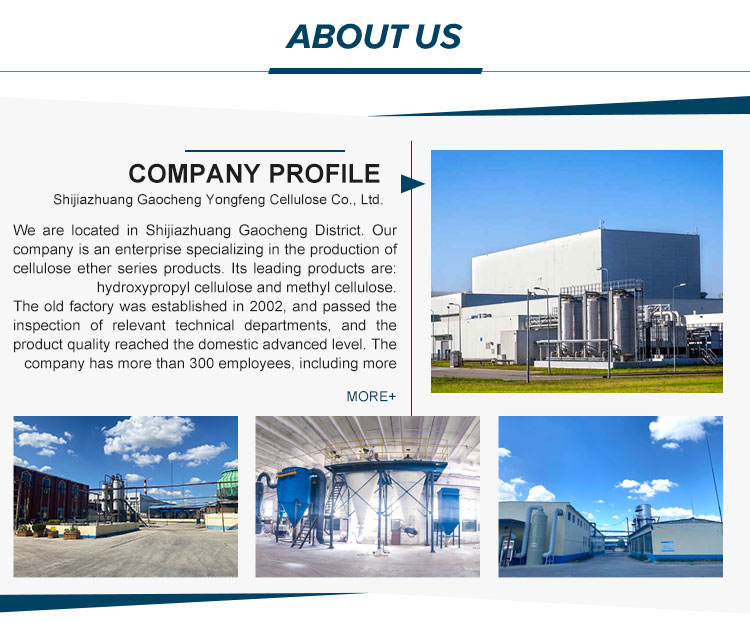
Compliance with Industry Standards
Shijiazhuang Gaocheng District Yongfeng Cellulose Co., Ltd. adheres to stringent quality control measures to ensure its products meet industry standards. While specific certifications are not detailed in the context, the company’s commitment to quality and innovation aligns with the principles outlined in NIST (National Institute of Standards and Technology) guidelines for construction materials. NIST’s research on construction adhesives emphasizes the importance of durability, workability, and environmental compliance, all of which are addressed by HPMC’s properties.
For example, NIST’s Standard Reference Materials (SRMs) provide benchmarks for material performance, ensuring that products like HPMC meet rigorous technical specifications. By leveraging such standards, Yongfeng Cellulose ensures its Tile Adhesive Chemical HPMC is both effective and reliable.
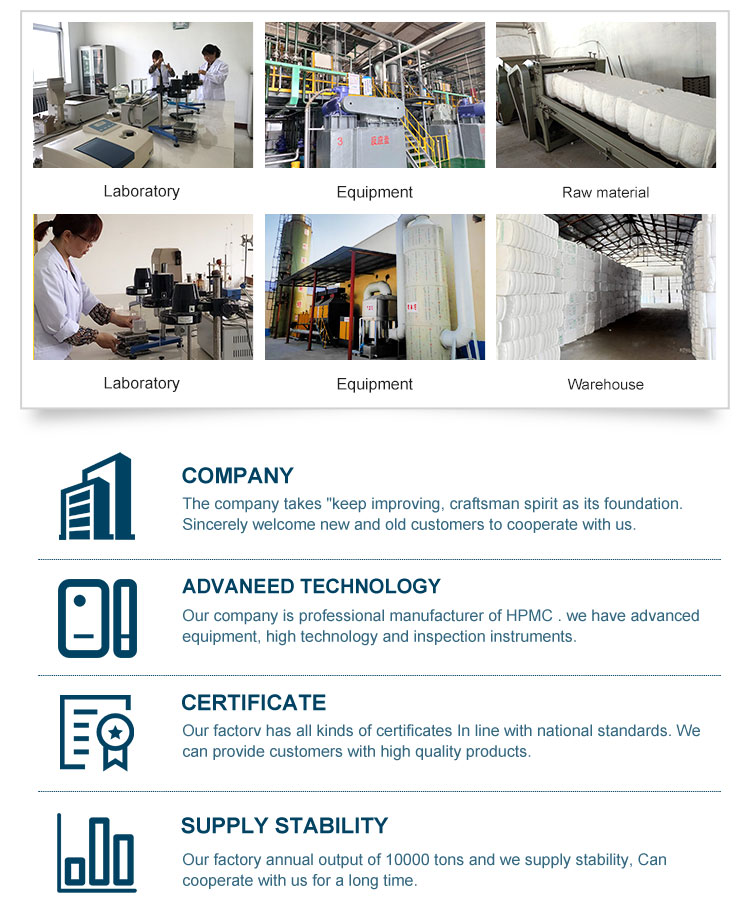
Conclusion
The Tile Adhesive Chemical Hydroxypropyl Methyl Cellulose (HPMC) from Shijiazhuang Gaocheng District Yongfeng Cellulose Co., Ltd. represents a high-performance solution for modern construction needs. Its technical specifications, application versatility, and company expertise make it an essential component in tile adhesives and plaster additives. As the construction industry continues to evolve, the demand for materials like HPMC will only grow, driven by the need for durability, efficiency, and sustainability.
For more information about HPMC or to explore other products from Shijiazhuang Gaocheng District Yongfeng Cellulose Co., Ltd., visit their official website.
References
-
Understanding Methyl 2 Hydroxyethyl Cellulose: Uses, Benefits & Industry InsightsNewsNov.24,2025
-
Hydroxyethyl Methyl Cellulose HEMC: Industrial Uses, Benefits & Future TrendsNewsNov.23,2025
-
HEMC Cellulose: Versatile & Sustainable Industrial Polymer | YoungcelNewsNov.23,2025
-
Methyl Hydroxyethyl Cellulose: Versatile Building Block for Industry & SustainabilityNewsNov.23,2025
-
CAS 9032 42 2: Understanding Polyvinyl Alcohol's Impact on Industry & SustainabilityNewsNov.22,2025
-
Hydroxyethyl Methyl Cellulose: Versatile Solutions for Modern Industry and SustainabilityNewsNov.22,2025




